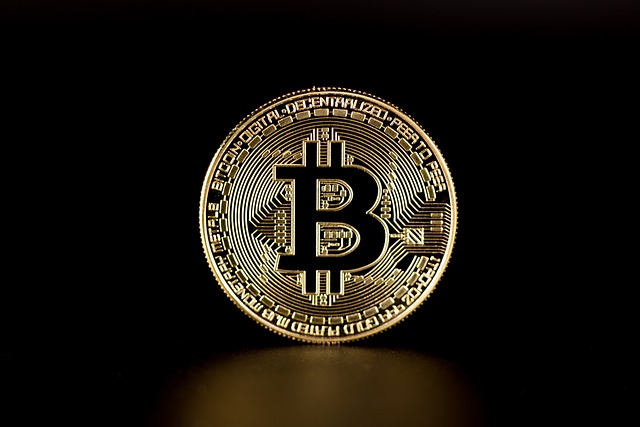Balancing Act: Decentralized Finance Pros and Cons Unveiled
Balancing Act: Decentralized Finance Pros and Cons Unveiled

What is Decentralized Finance?
Decentralized Finance, commonly known as DeFi, refers to a financial system that operates without the need for intermediaries such as banks or other centralized institutions. It is built on blockchain technology, which provides transparency, security, and immutability to financial transactions. In this system, anyone can participate and contribute by lending, borrowing, investing, or providing liquidity to various decentralized applications (DApps).
One of the key features of decentralized finance is its permissionless nature. Unlike traditional finance, which often requires extensive paperwork and approval processes, DeFi allows users to access financial services without any restrictions. This opens up opportunities for individuals from all around the world, especially those who are unbanked or underbanked, to participate in global financial markets. Moreover, since DeFi operates on a decentralized network, it eliminates the single point of failure and reduces the risk of censorship or seizure of assets, making it more resilient and secure.
The Advantages of Decentralized Finance
Decentralized finance, often referred to as DeFi, offers several advantages that have caught the attention of many individuals and institutions around the world. One of the key advantages of DeFi is the increased accessibility it provides. Unlike traditional financial systems that often have numerous barriers to entry, such as high fees or geographical restrictions, DeFi platforms operate on the blockchain, making them open to anyone with an internet connection.

Another advantage of DeFi is the potential for enhanced financial privacy. While traditional financial institutions often collect and store personal and transactional data, DeFi platforms utilize smart contracts on the blockchain, offering a higher level of anonymity. This increased privacy can be particularly appealing to individuals who value their financial sovereignty and prefer not to disclose their financial activities to centralized authorities.

The Disadvantages of Decentralized Finance
One major disadvantage of decentralized finance is its complexity. With multiple protocols, platforms, and smart contracts involved, navigating the decentralized finance system can be overwhelming for those who are not familiar with blockchain technology. The need for technical knowledge and expertise can act as a barrier for individuals who want to participate in decentralized finance but lack the necessary skills. This can limit the accessibility and inclusivity of decentralized finance, making it more suitable for tech-savvy individuals, while leaving others behind.
Additionally, the lack of regulation in decentralized finance poses another challenge. While the absence of centralized authorities and intermediaries is often touted as a benefit, it also means that there is limited oversight and protection for users. Without proper regulations in place, users may be exposed to fraudulent activities, scams, and security risks. This can result in financial losses and a loss of trust in the decentralized finance ecosystem. The decentralized nature of finance also makes it difficult to hold any party accountable for such incidents, further complicating the issue.
Decentralized Finance vs Traditional Finance
The world of finance has always revolved around centralized institutions, such as banks and financial intermediaries. Traditional finance, as we know it, follows a hierarchical structure, with these centralized entities playing a crucial role in managing and controlling transactions and investments. However, decentralized finance (DeFi) challenges this status quo by leveraging blockchain technology to create a more inclusive and transparent financial system.
DeFi offers several advantages over traditional finance. Firstly, it eliminates the need for intermediaries, reducing costs and increasing efficiency. Transactions can be conducted directly between parties without the need for third-party authentication or approval. Additionally, the decentralized nature of DeFi fosters financial inclusivity, allowing anyone with an internet connection and a smartphone to access and participate in the financial ecosystem. This is particularly beneficial for those who are excluded from the traditional banking system due to geographical limitations or lack of identification documents.
The Role of Blockchain in Decentralized Finance
Blockchain technology plays a pivotal role in the world of decentralized finance (DeFi). By utilizing a distributed ledger system, blockchain allows for secure and transparent transactions without the need for intermediaries such as banks or financial institutions. The decentralized nature of blockchain ensures that no single entity has control over the network, contributing to a more inclusive and accessible financial ecosystem.
One of the significant advantages of utilizing blockchain in DeFi is its ability to provide immutable and auditable records of transactions. Each transaction is recorded on the blockchain, creating a permanent and transparent transaction history. This transparency not only enhances the security and trustworthiness of the financial system but also enables greater accountability among participants. Additionally, the decentralized nature of blockchain eliminates the risk of a single point of failure, as the network is spread across multiple nodes, making it highly resistant to hacking and fraud. As a result, the use of blockchain technology in decentralized finance has the potential to revolutionize the way we handle financial transactions, offering a more secure and efficient alternative to traditional financial systems.
The Impact of Decentralized Finance on the Banking Industry
Decentralized finance (DeFi) has undoubtedly left a significant impact on the banking industry. Traditional banks, which have long held a monopoly over financial services, are now facing unprecedented challenges. With the emergence of DeFi platforms, individuals have the opportunity to access financial services without relying on banks as intermediaries.
The impact of DeFi on the banking industry can be seen in various aspects. Firstly, it has democratized the financial landscape by providing equal opportunities for all individuals to participate in financial activities. Previously, access to banking services was heavily dependent on an individual’s credit score and financial history. However, DeFi eliminates these barriers, enabling everyone to access services like lending, borrowing, and earning interest on their assets. Banks are now compelled to rethink their traditional business models to compete with the inclusivity and accessibility offered by DeFi platforms.
The Risks and Security Concerns in Decentralized Finance
There is no denying the potential of decentralized finance (DeFi) to transform the way we interact with financial systems. However, as with any innovative technology, there are inherent risks and security concerns that need to be addressed. One of the main concerns revolves around the vulnerability of decentralized applications (DApps) to hacks and bugs.

Another significant risk in DeFi is the presence of potential scams and fraudulent projects. The decentralized nature of the ecosystem can make it difficult to distinguish legitimate projects from those seeking to exploit unsuspecting users. These scams can take various forms, ranging from fake projects promising high returns to phishing attacks aimed at stealing users’ private keys. The lack of regulatory oversight in DeFi also adds to the challenge of combating such scams. As a result, users must exercise caution and conduct thorough due diligence before investing or interacting with any DeFi platform.
Without a doubt, addressing these risks and security concerns is critical for the long-term success and adoption of decentralized finance. As the industry continues to evolve, it is expected that regulatory frameworks and best practices for security will be established to protect users and their investments.
• Vulnerability of decentralized applications (DApps) to hacks and bugs
– Smart contract vulnerabilities can be exploited by malicious actors
– Thorough audits and security assessments of smart contracts are crucial
• Presence of scams and fraudulent projects in DeFi
– Difficult to distinguish legitimate projects from scams
– Scams can range from fake projects to phishing attacks
• Lack of regulatory oversight in DeFi adds to the challenge
– Users must exercise caution and conduct due diligence before investing or interacting with any platform
• Addressing these risks is critical for long-term success and adoption of decentralized finance
– Regulatory frameworks and best practices will likely be established over time.
The Future of Decentralized Finance
In the future, decentralized finance is poised to revolutionize the way we handle our finances. With its ability to remove intermediaries and provide greater financial inclusion, it has the potential to empower individuals and communities like never before. Imagine a world where anyone, regardless of their background or location, can access financial services and participate in the global economy. This opens up a world of opportunities for individuals to invest, borrow, and contribute to projects that align with their goals and values.
Moreover, decentralized finance is expected to enhance transparency and security in financial transactions. With its utilization of blockchain technology, every transaction can be recorded and verified, eliminating the need for trust in traditional financial systems. This can lead to greater confidence in the overall system and reduce the risk of fraud and manipulation. As more and more people recognize the benefits of decentralized finance and the technology continues to evolve, we can anticipate a future where financial systems are more equitable, efficient, and secure.
Regulatory Challenges for Decentralized Finance
Despite the potential benefits of decentralized finance (DeFi), there are several regulatory challenges that need to be addressed. One of the main hurdles is the lack of clarity and consistency in regulations across different countries. As DeFi operates on a global scale, it becomes difficult to navigate through the varying regulatory frameworks. This uncertainty not only deters potential investors and financial institutions from participating, but it also creates an environment where malicious actors can take advantage of the lack of oversight. Therefore, establishing a clear regulatory framework that addresses the specific needs and risks of DeFi is essential for its long-term success and adoption.
Another regulatory challenge is the identification and verification of users on decentralized platforms. Unlike traditional financial systems where intermediaries carry out customer due diligence procedures, DeFi relies heavily on decentralized networks and smart contracts. This decentralized nature makes it challenging to ensure that users are genuinely who they claim to be, leading to concerns regarding anti-money laundering and counter-terrorism financing measures. Regulators must find ways to strike a balance between protecting against illicit activities and preserving the privacy and anonymity that are intrinsic to DeFi. It is a delicate task that requires innovative solutions and collaboration between regulators and industry participants to develop effective compliance measures without stifling the potential of DeFi.
Case Studies: Successful Implementations of Decentralized Finance
Decentralized finance (DeFi) has gained significant traction in recent years, with several successful implementations showcasing its potential. One notable case study is the development of decentralized lending platforms such as Compound and Aave. These platforms allow individuals to borrow and lend digital assets without the need for intermediaries, offering greater transparency and efficiency compared to traditional lending systems. Additionally, users can earn interest through lending their assets, providing an alternative income stream for investors. The success of these platforms has demonstrated the viability of decentralized lending in the financial industry.
Another noteworthy case study is the emergence of decentralized exchanges (DEXs) like Uniswap and SushiSwap. These platforms enable users to trade cryptocurrencies directly from their digital wallets, eliminating the need for centralized exchanges and their associated risks. By leveraging smart contracts and liquidity pools, DEXs offer increased privacy, lower fees, and improved market accessibility. These factors have contributed to their soaring popularity among cryptocurrency enthusiasts and underscore the potential of decentralized finance in revolutionizing the way we transact and participate in the digital economy.
What is Decentralized Finance?
Decentralized Finance, also known as DeFi, is a financial system that operates on blockchain technology, allowing users to engage in financial activities without the need for intermediaries like banks.
What are the advantages of Decentralized Finance?
Decentralized Finance brings several advantages, such as greater accessibility, lower fees, increased transparency, and the ability to earn passive income through various lending and staking platforms.
Are there any disadvantages of Decentralized Finance?
Yes, there are a few disadvantages of Decentralized Finance. One is the higher risk associated with smart contract vulnerabilities and potential hacking. Additionally, the lack of regulatory oversight can lead to scams and fraudulent projects.
How does Decentralized Finance differ from Traditional Finance?
Decentralized Finance differs from Traditional Finance because it eliminates intermediaries like banks and allows for direct peer-to-peer transactions. It also operates on a transparent and open-source blockchain, which provides increased security and transparency.
What role does blockchain play in Decentralized Finance?
Blockchain technology is the backbone of Decentralized Finance. It ensures security, immutability, and transparency of all financial transactions, allowing users to trust the system without the need for intermediaries.
How does Decentralized Finance impact the banking industry?
Decentralized Finance poses a potential threat to traditional banking systems since it eliminates the need for intermediaries, reduces transaction costs, and provides greater financial inclusivity. Banks may need to adapt and incorporate blockchain technology to stay relevant.
What are the risks and security concerns in Decentralized Finance?
Risks in Decentralized Finance include smart contract vulnerabilities, potential hacking, and the lack of regulatory oversight. Security concerns arise due to the significant amount of funds stored in decentralized platforms, making them appealing targets for hackers.
What does the future hold for Decentralized Finance?
The future of Decentralized Finance looks promising. It has the potential to revolutionize the financial industry, offering greater financial inclusivity, lower fees, and innovative financial products. However, regulatory challenges need to be addressed for widespread adoption.
What are the regulatory challenges for Decentralized Finance?
Decentralized Finance faces regulatory challenges as the technology operates in a relatively unregulated space. Regulators need to develop frameworks that strike a balance between protecting investors and fostering innovation in the industry.
Can you provide some case studies of successful implementations of Decentralized Finance?
Sure! Some notable case studies include the decentralized lending platform Aave, the decentralized exchange Uniswap, and the decentralized stablecoin protocol MakerDAO. These platforms have gained significant traction and adoption in the DeFi space.
Todays Featured Product:
Buy, exchange and grow your crypto securely with a Ledger hardware wallet, combined with the Ledger Live app. It’s never been easier to keep your crypto safe and accessible. Buy direct from Ledger.com and get todays Special Offers Here.




